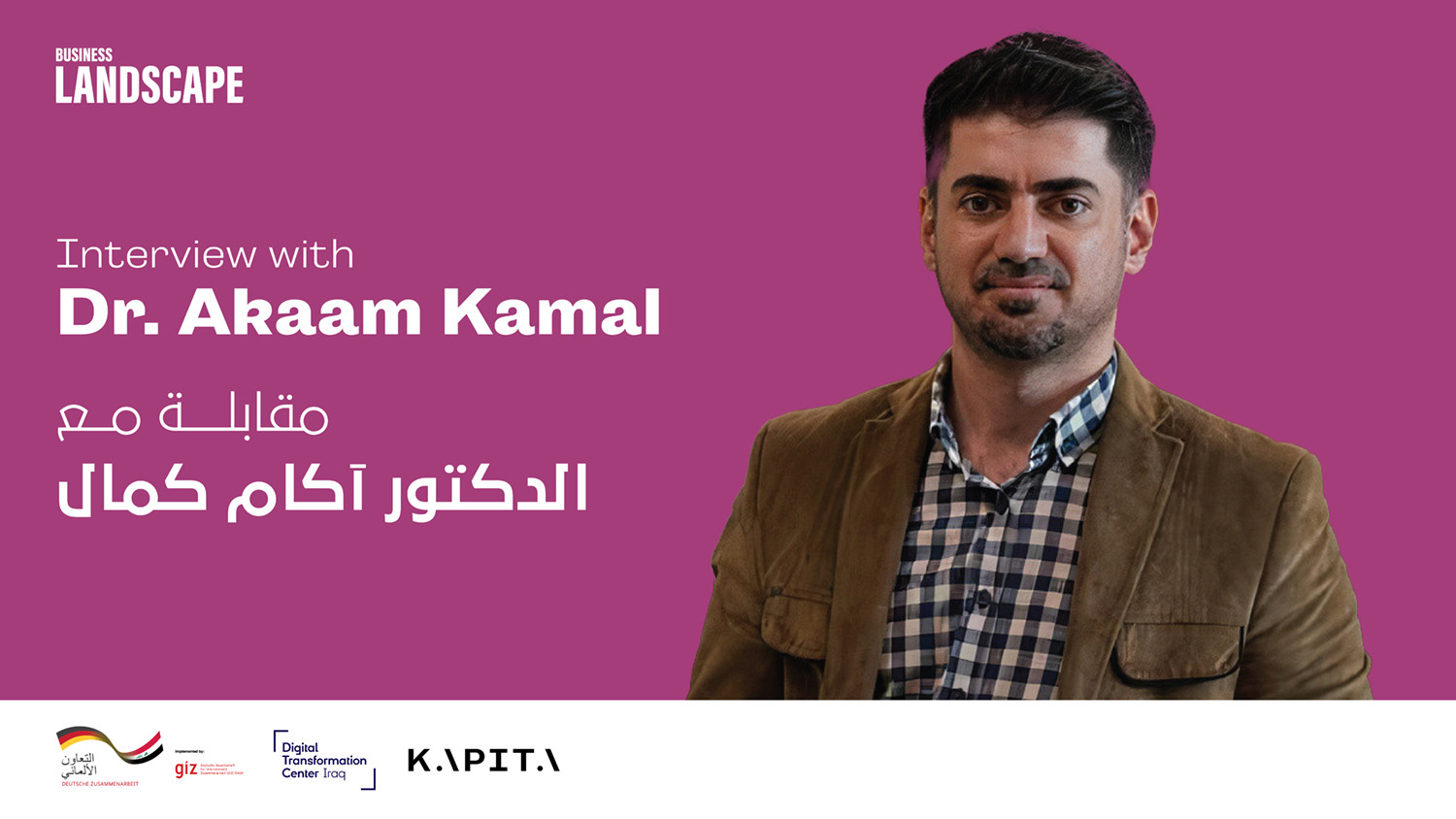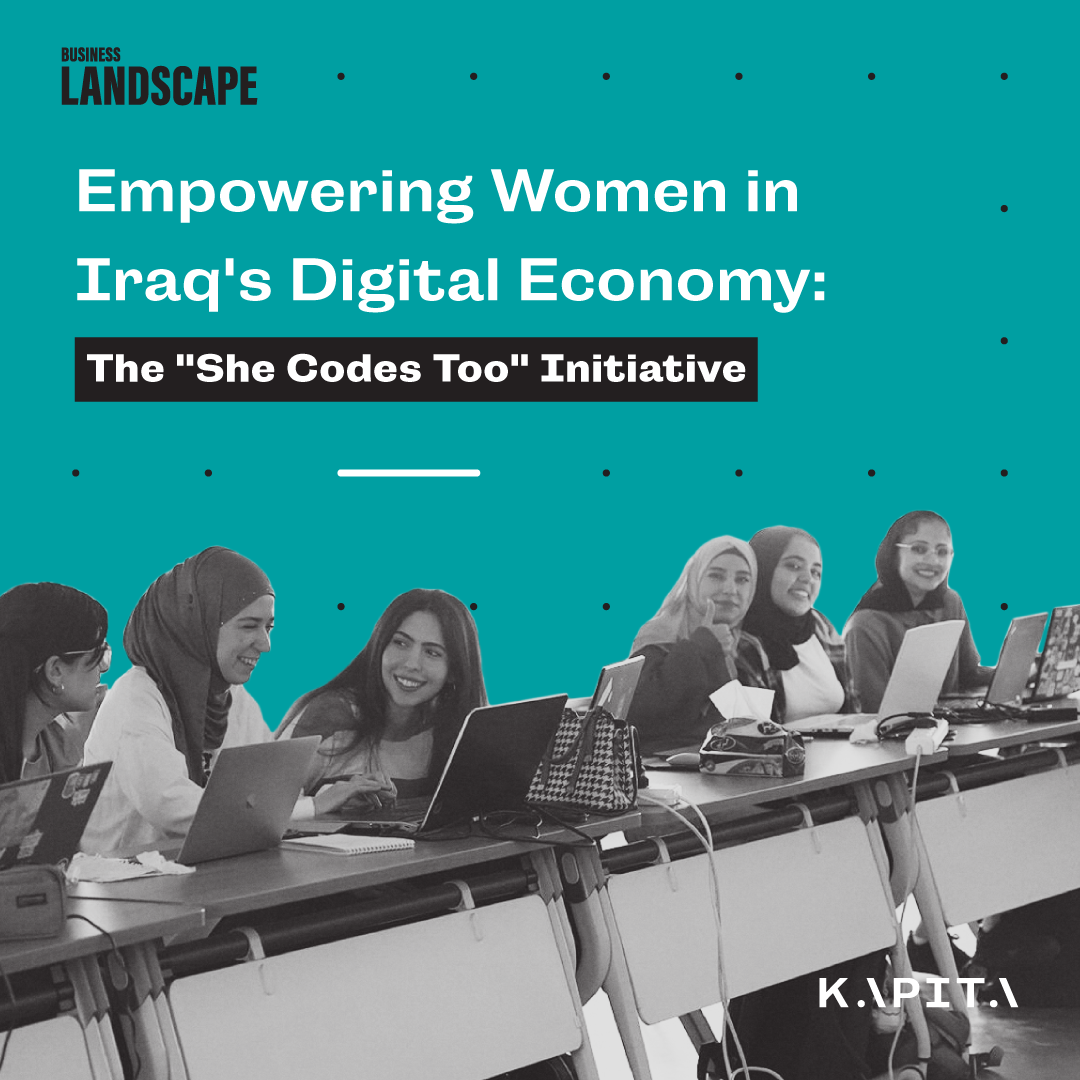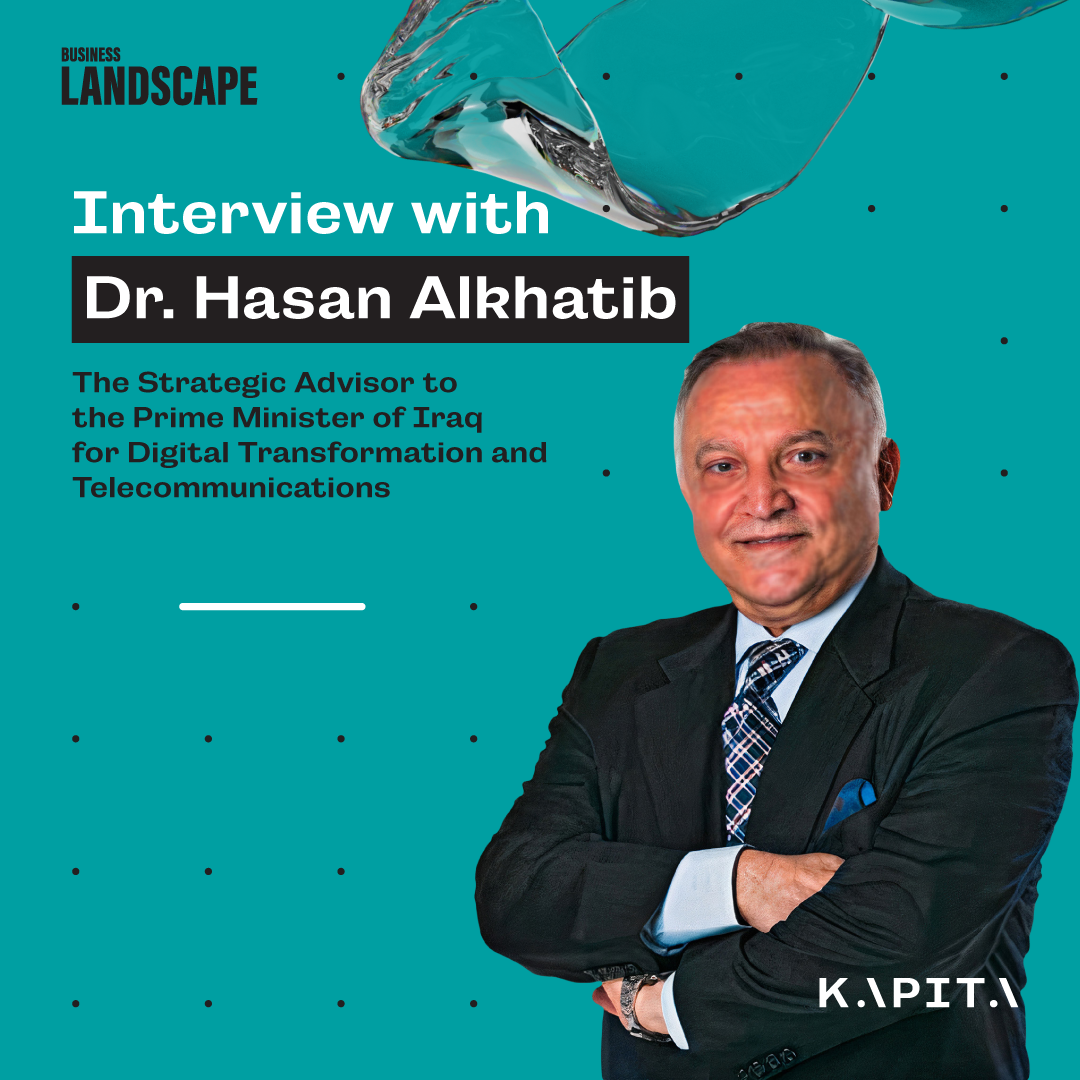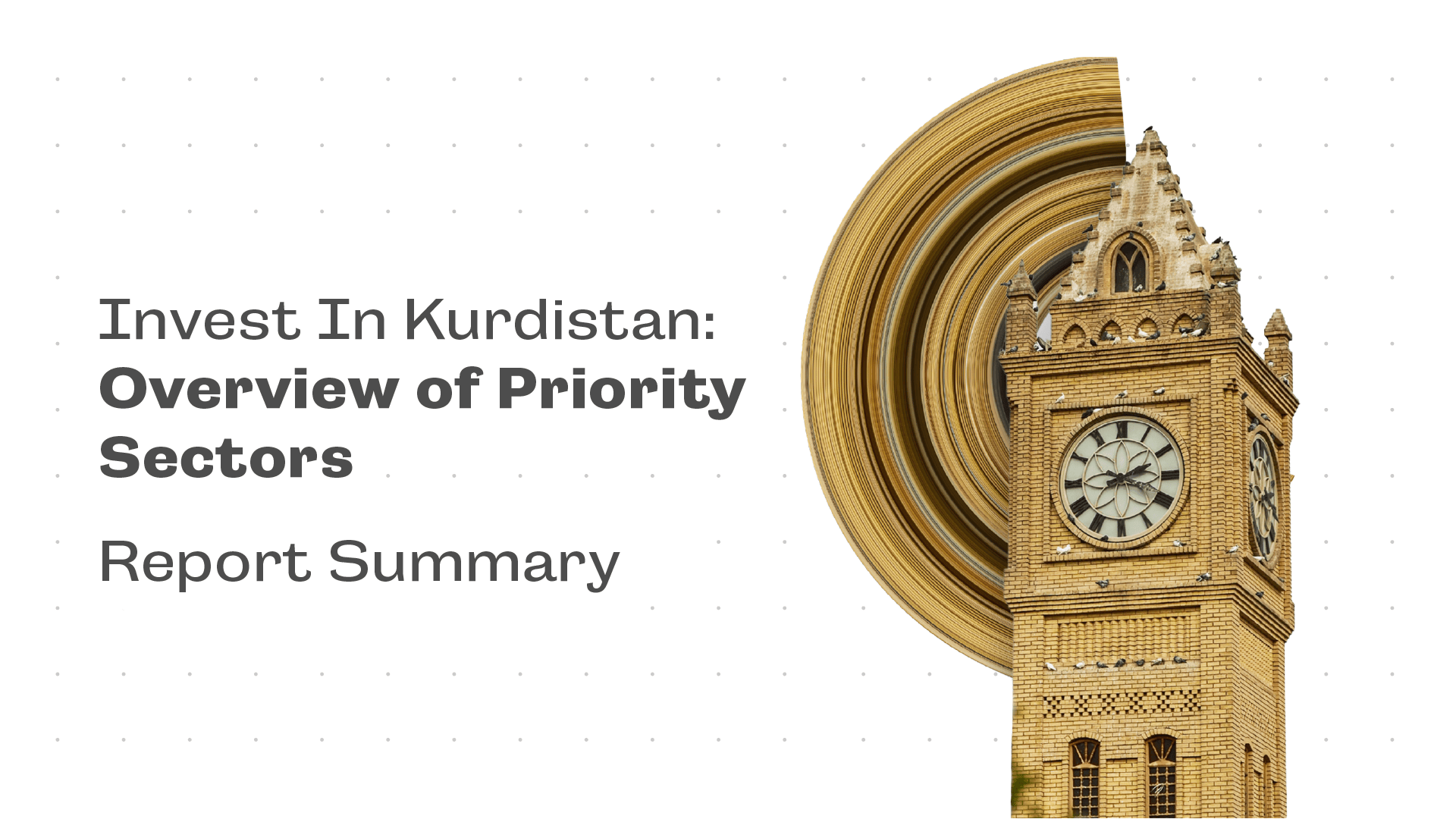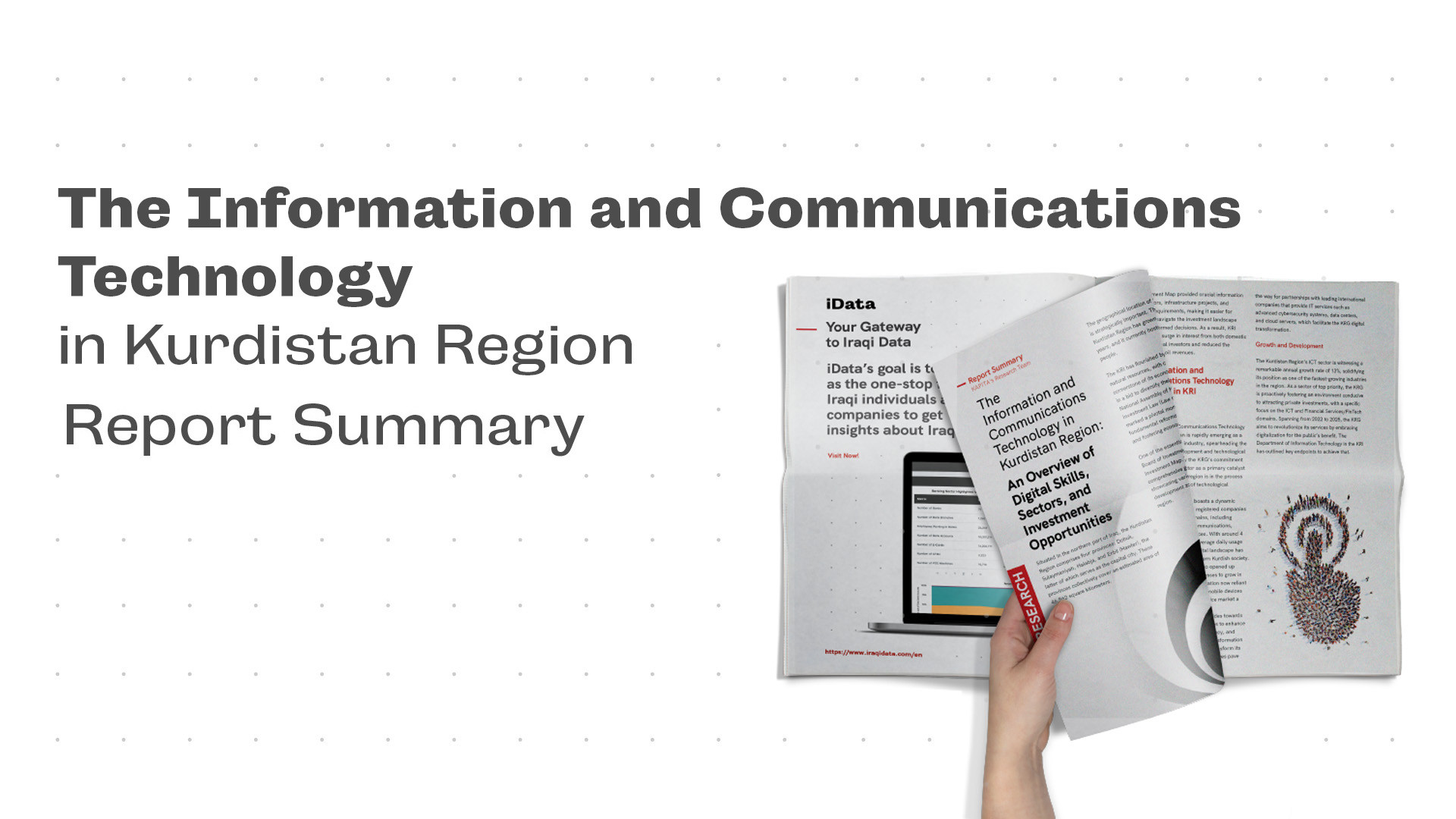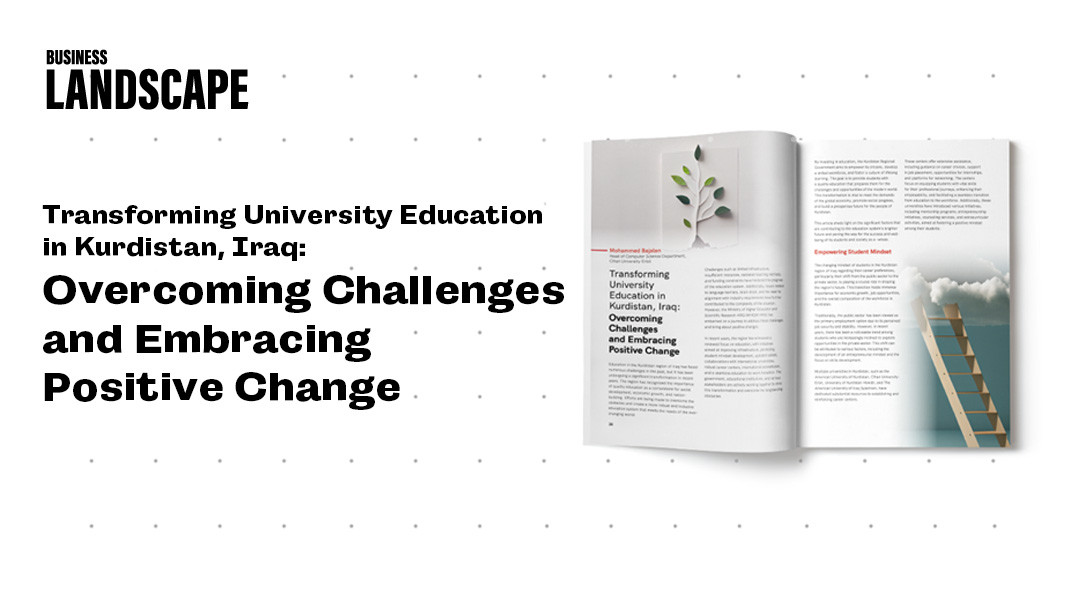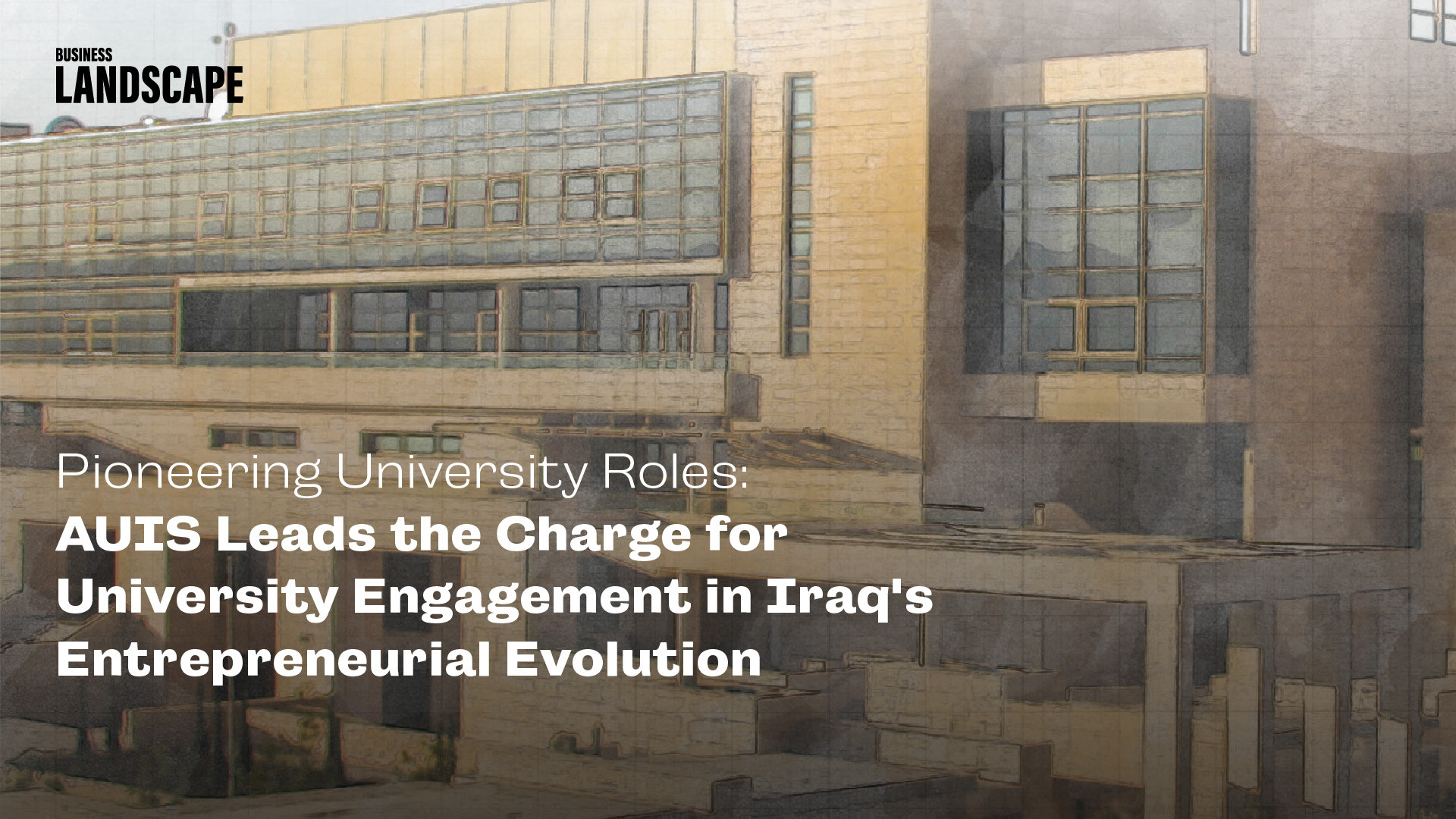Business LANDSCAPE Interview
Dr. Akaam Kamal
Executive Director, Halabja Group
Dr. Akaam Kamal is the Executive Director of Halabja Group, one of the leading companies in the Kurdistan Region and Iraq. It operates in various sectors, including construction and real estate, energy, education, fast consumer goods, and telecommunications. It owns more than 20 enterprises between companies and factories. Dr. Akaam, a Ph.D. holder in Strategic Management, currently oversees a business's strategic vision and leads key decisions in consultation with the chairman to drive the company’s growth. He collaborates with the leadership team, implements strategic plans for company development, and manages relationships with stakeholders.
In this interview, Dr. Akaam discusses the company's diversified business sectors, commitment to community support and region development, dedication to education and workforce development, partnerships in the food industry, and contributions to the local agricultural sector and food industry. He also highlights the importance of foreign investment for knowledge exchange and sector growth in the Kurdistan Region.
Halabja Group began in the 1980s. Can you tell us about the journey of Halabja Group up until today?
Halabja Group was established in the late 1980s for trading. We have expanded our scope beyond the trading sector, venturing into a diverse range of industries. Our involvement spans the industrial sector, real estate sector, telecommunications, education sector, and numerous other sectors.
The Group also includes many companies such as Halabja for General Trading and Transportation, Halabja for General Construction, Aso Brick Factory, Aran Asphalt, Bayan Real Estate, Halabja Concrete, Halabja Telecom Service HTS, Family Mall Slemani, Rasan Olive Oil Factory, Hilal and Ishtar Brick Factories, and many others.
Halabja Group takes a special interest in the construction sector. What are the companies operating under the Group in this field, and what are your latest projects?
Halabja Group has played a pivotal role in the construction and Iraq’s infrastructure by implementing many projects. Bayan Company is our construction arm.
Our latest projects include Garden City Slemani (Garden City villas, Garden City Townhouse, Garden City Towers), Garden City Kirkuk (phase 4), Garden City Rumadi, and Garden City Baghdad.
Halabja Group used the latest technologies and designs in those projects to support the construction sector going forward. Moreover, our projects are valuable for end-users and sustainable in terms of quality and price.
Regarding training and education, how is Halabja Group dedicated to creating a workforce equipped with the necessary skills to meet the market demands?
Halabja Group prioritizes both the human and environmental impact of our projects. Halabja Group strongly supports the education sector. We have a nursery, kindergarten, school, and university. We also foster a close relationship between our HR Department and the Komar University Training Center. A part of HR’s responsibility is developing and training staff based on annual evaluations or developments in terms of technology and market demand.
The job market is constantly changing, and the demand for technology-driven careers is increasing. Hence, constant skills development is vital for the company's growth. In addition, we focus on the career skills necessary for improving our business, such as sales, leadership, strategic marketing, and strategic management.
Halabja Group also frequently takes part in many events and discussions held by the Government to provide consultation regarding bridging the gap between job market requirements and the skills of the labor force.
What are some of the key partnerships the Halabja Group has? What sectors do these partnerships target, and how do they translate into developing the private sector and creating business opportunities?
Halabja Group aims to increase local production and revive the private sector. We take crucial steps in fostering self-sufficiency and growth, particularly in the food industry. We believe in reducing the reliance on imports by developing the local food value chains and creating employment opportunities for the local labor force. Therefore, we started our first food industry project in 2018 with Rasan Olive Oil Factory in Halabja City with Italian technology from Amenduni company. We also have goat farms powered by Dutch technology, from SAC, Reheat, and Mueller. Now, we are working on the biggest dairy project in the country in collaboration with Tetra Pak, Fabs, and others.
In the internet and telecommunications sector, Halabja Group is a leading player in KRG. Can you tell us more about Halabja Telecom Services Company?
Halabja Telecom Service (HTS) was established in 2012 to service the rapidly developing and constantly evolving telecommunications sector. Using the latest technologies and practices HTS has, over the
years, invested in building up a workforce of skilled and experienced engineers and support staff capable of providing high-quality standards of services to telecommunications companies. This has allowed the company to be a leader in providing telecom services to mobile and internet providers.
With the guiding slogan “Networks must always be online,” HTS’s main services are designing, installing, maintaining, and upgrading telecom towers. HTS also offers consultancy services, utilizing its extensive experience and skilled workforce for planning and developing strategies in the telecommunications sector. HTS operates in Sulaymaniyah, Halabja, Kirkuk, and Diyala.
The KRG government has taken numerous initiatives to attract investments. What opportunities does foreign investment bring to the region?
Halabja Group has invested in strengthening the region’s infrastructure. Our vision is to consistently provide high-quality products and modern systems that become the top choice for customers. Kurdistan and Iraq have the human resources and capital, but we need knowledge exchange and know-how. Buying and installing the technology is the easy part of a project. We need knowledge transfer in a sustainable manner apart from the technologies. We think this is where the role of foreign investors contributes to many developing sectors in the region.
Can you tell us about Halabja Group’s contribution to the agricultural sector?
Halabja Group had a long-term plan to invest in the agri-food sector and later emerged as a leading Group in this domain. In 2018, we started with Rasan Olive Oil Factory, producing extra virgin quality oil. During a short period of time, our product built an excellent reputation in the market, with a capacity to extract olive oil from 120 tons of olive daily.
Furthermore, we started to build the first goat farm in Iraq by importing 360 goats from the Netherlands. Rasan goat farm has been a very successful venture in a couple of years and has inspired many other investors to follow in their footsteps to revitalize this sector.
Moreover, we are building Rasan Food Complex, which is a big factory to produce about 200 dairy products with a capacity of 1000 tons daily. This factory aims to provide Iraqis with clean, safe, high-quality local products. This factory will also provide thousands of job opportunities and increase employment rates in the region.
Halabja Group expresses gratitude to the KRG for their productive support in assisting the establishment of our industries. More support and collaboration are needed from the stakeholders in this sector to improve the state of the agri-food industry and encourage investment in this sector.
In addition to the office inside the country, Halabja Group has offices in Dubai, Turkey, and China. What purpose do these offices serve and how do they contribute to the expansion of the Group?
Halabja Group has established offices in Dubai, Turkey, and China to facilitate knowledge transfer and technology exchange with developed countries. These international offices play a vital role in our expansion strategy by allowing us to learn from their experiences, access cutting-edge technologies, and bring this knowledge back to enhance our operations and projects. The goal is to ensure a smooth transfer of technology and meet the needs of our companies and projects, ultimately benefiting not only our Group but also the entire region. Additionally, we remain open to the possibility of establishing more offices in the future tailored to the specific needs of our company and the markets we serve.
